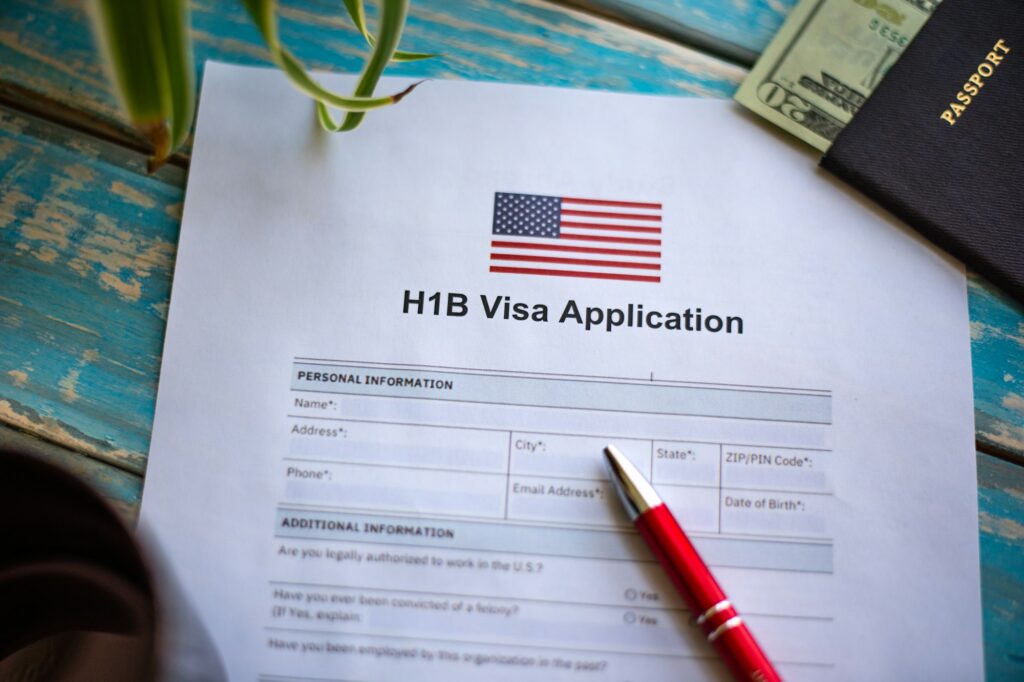Introduction
The H-1B visa program has long been a focal point in U.S. immigration policy, allowing American companies to hire skilled foreign professionals, particularly in STEM fields. However, this program remains a contentious issue, with ongoing debates about its impact on the U.S. job market, wages, and economic competitiveness.
Recently, Elon Musk and Bernie Sanders have voiced their perspectives on the program, reflecting the polarized nature of the debate. While Musk supports H-1B visas as a tool for attracting top global talent, Sanders argues that the system is flawed and often used to suppress wages and replace American workers.
As the U.S. considers potential reforms to its skilled immigration system, these perspectives highlight the challenges in balancing economic demands with labor protections.
Key Takeaways
✔ Elon Musk Supports the H-1B Program – He views it as essential for attracting top global talent to U.S. technology and engineering sectors. ✔ Bernie Sanders Criticizes H-1B Visas – He warns that corporations use the program to undercut American wages and replace domestic workers. ✔ Both Agree on the Need for Reform – Despite opposing views, both acknowledge flaws in the current system and call for stricter oversight. ✔ Economic vs. Labor Interests – The debate underscores the broader conflict between corporate needs and worker protections. ✔ Potential Policy Shifts – The future of the H-1B program may involve stricter regulations, increased safeguards for U.S. workers, or expanded quotas for high-demand professions.
Elon Musk’s Perspective: H-1B Visas Are Critical for Innovation
📌 Why Musk Supports the Program
- As an immigrant himself, Musk champions skilled migration as a driver of American innovation.
- He argues that the U.S. lacks enough homegrown engineers, making it necessary to recruit global talent.
- Musk has openly criticized restrictive immigration policies, calling for a streamlined process to retain the best minds in the U.S.
📌 Musk’s Key Arguments: ✔ The U.S. must remain competitive in tech and engineering by attracting the world’s best talent. ✔ Many American universities produce top-tier foreign graduates who struggle to secure work visas. ✔ Restricting H-1B visas weakens American companies and forces them to move jobs overseas.
📌 Musk’s Proposed Solutions:
- Expand the H-1B cap for tech-related fields.
- Make it easier for high-skilled workers to gain permanent residency.
- Reform work visa programs to prevent bureaucratic delays.
Bernie Sanders’ Perspective: H-1B Exploits Workers and Lowers Wages
📌 Why Sanders Opposes the Program
- Sanders argues that corporations abuse the H-1B visa system to bring in cheaper foreign labor, often at the expense of American workers.
- He highlights cases where companies lay off U.S. employees and force them to train their foreign replacements.
- Sanders has called for stronger labor protections and a shift toward investing in the domestic workforce.
📌 Sanders’ Key Arguments: ✔ The H-1B system is used as a cost-cutting tool rather than a skills-driven necessity. ✔ Employers prioritize foreign workers who accept lower wages instead of hiring American workers. ✔ The program benefits large corporations while harming U.S. professionals, particularly in IT and engineering.
📌 Sanders’ Proposed Solutions:
- Increase wages for H-1B employees to prevent salary undercutting.
- Mandate hiring American workers first before resorting to foreign labor.
- Crack down on outsourcing practices that use H-1B visas to replace U.S. workers.
The Common Ground: A Need for Reform
📌 Both Musk and Sanders Agree On: ✔ The system is flawed – Whether due to corporate exploitation (Sanders) or bureaucratic inefficiency (Musk), both agree the program needs reform. ✔ Oversight is lacking – There is little enforcement to prevent companies from misusing visas. ✔ The U.S. needs top talent – While Musk focuses on global recruitment, Sanders believes the solution lies in training U.S. workers. ✔ Policy changes are overdue – Both figures suggest the current structure is unsustainable and needs adjustments to meet economic demands and labor protections.
Potential Policy Changes and Future Outlook
📌 Will the U.S. Expand or Restrict H-1B Visas?
- Business leaders push for expanded H-1B quotas, arguing that the U.S. needs more skilled workers.
- Labor unions demand stronger regulations, fearing job displacement and wage stagnation.
- The Biden administration has signaled a middle-ground approach, balancing economic growth with worker protections.
📌 Possible H-1B Reforms in the Future: ✔ Higher salary requirements to prevent wage suppression. ✔ Quota increases for critical industries like AI, cybersecurity, and healthcare. ✔ Stronger penalties for companies misusing H-1B workers. ✔ Fast-tracking green cards for highly skilled migrants to retain talent.
How Does the U.S. Compare to Other Countries?
📍 Canada:
- Uses the Global Talent Stream to fast-track visas for skilled professionals in tech and engineering.
- Offers permanent residency pathways for H-1B workers moving from the U.S..
📍 Germany:
- Implements a Blue Card system, providing long-term work permits to high-skilled workers.
- Requires employers to prove they cannot fill the role locally before hiring foreigners.
📍 Australia:
- Uses a points-based visa system to attract highly skilled professionals.
- Prioritizes in-demand sectors but places caps on foreign labor.
The U.S. H-1B system remains one of the most contested in the world, with ongoing tensions between economic necessity and labor protections.
Conclusion
The H-1B visa debate continues to be a central issue in U.S. immigration and labor policy. With Musk advocating for expanded skilled migration and Sanders pushing for stronger worker protections, the future of the program remains uncertain.
As the U.S. navigates workforce shortages, technological growth, and labor concerns, any reforms to the H-1B system will have far-reaching consequences for businesses, workers, and the global talent pool.
#USA #ImmigrationPolicy #H1BVisa #SkilledWorkers
Source – vox.com










